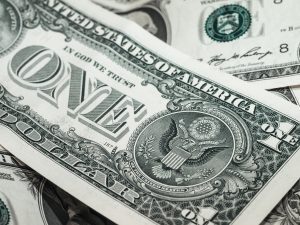In a world more interconnected than ever before, the global supply chain crisis has sent shockwaves through the heart of economies around the world. The United States, as one of the world’s largest economies and a major player in international trade, finds itself at a pivotal crossroads. The repercussions of this crisis are being felt from factory floors to Wall Street, causing a ripple effect with far-reaching implications.
As a journalist dedicated to accurate reporting and ethical journalism, I aim to explore the intricate web of this crisis and its implications on the US economy. Let’s delve into the key aspects of this story, from its origins to the strategies and potential solutions.
Understanding the Global Supply Chain Crisis:
The global supply chain crisis is a multifaceted issue with roots stretching back to the early days of the COVID-19 pandemic. Initially, the crisis was triggered by factory shutdowns, labor shortages, and transportation bottlenecks, which disrupted the flow of goods and materials worldwide. This led to significant delays and rising costs in production, ultimately impacting consumers’ wallets.
The Impact on the US Economy:

- Inflation: The most immediate and apparent effect has been the surge in inflation, with rising prices on everything from electronics to groceries. This has left Americans feeling the pinch, impacting their purchasing power and altering their spending patterns.
- Business Disruption: US businesses have been forced to adapt rapidly, as they grapple with increased lead times, production bottlenecks, and escalating shipping costs. Some have had to halt production, cut jobs, or pass on higher costs to consumers.
- Stock Market Volatility: Wall Street has been closely monitoring the supply chain crisis, as it directly impacts the earnings and valuation of companies across various sectors. Investors are on edge as they assess the potential long-term impacts on profitability.
- Consumer Behavior: Consumers are experiencing delays in receiving their products, leading to frustration and impacting retailers’ sales. Some are reevaluating the importance of convenience and opting for more local or sustainable options.
Policy and Solutions:
The US government, in coordination with international partners, has been actively working on addressing the crisis. Key strategies include:
- Infrastructure Investments: The Biden administration’s infrastructure bill allocates funds for improving ports, roads, and bridges, which is crucial for reducing bottlenecks and improving the flow of goods.
- Reshoring Initiatives: Some US companies are exploring the idea of bringing their manufacturing closer to home, which could potentially reduce reliance on fragile international supply chains.
- Trade Agreements: International cooperation is key, and the US is exploring ways to improve trade relations with key partners, addressing issues that have hindered the free flow of goods.
A Call for Resilience:
As the supply chain crisis continues to evolve, it’s evident that resilience is the name of the game. Businesses, consumers, and policymakers need to adapt to the new normal, where supply chain disruptions are no longer the exception but the rule. Diversification, transparency, and technological innovation will play a pivotal role in overcoming these challenges.
This crisis is a stark reminder that in our interconnected world, global events have local consequences. The US economy’s response to this challenge will define its resilience in the years to come.
In this ongoing investigation, I will continue to delve into the intricacies of the global supply chain crisis and its impact on the US economy, providing you with the latest updates, expert insights, and the human stories behind the headlines. Stay tuned for more in-depth analysis and reporting on this critical issue.











